- Home
- Jude Hardin
COLT (A Nicholas Colt Thriller)
COLT (A Nicholas Colt Thriller) Read online
OTHER BOOKS BY
JUDE HARDIN
POCKET-47
CROSSCUT
SNUFF TAG 9
KEY DEATH
BLOOD TATTOO
http://judehardinbooks.com/
For periodic updates and special offers, please sign up for Jude’s newsletter at
http://eepurl.com/zn1XD
To post a review of COLT, or other books by Jude Hardin, please visit
http://tinyurl.com/cz9hnrl.
COLT
Jude Hardin
COLT
Copyright © 2013 by Jude Hardin
All rights reserved. No part of this book may be used or reproduced in any form or by any means, or stored in a database or retrieval system, without prior written permission of the publisher except in the case of brief quotations embodied in critical articles and reviews.
This is a work of fiction. Names, characters, places, and incidents either are the product of the author’s imagination or are used fictitiously, and any resemblance to actual persons, living or dead, business establishments, events, or locales is entirely coincidental.
PROLOGUE
A few days after everything went down, one of the county deputies filled me in on some of the details over a beer at Kelly’s Pool Hall. He said that after several hours of interrogation at the hospital, the detectives working the case had finally managed to get a written confession. It went something like this:
I didn’t really want to do it. It was like I had to, you know? Especially after I drove down there and nabbed her. I didn’t have much of a choice after that. I couldn’t just let her go. She begged me, and she promised not to tell anyone, but you can’t trust someone under those circumstances. She would have said anything to save her own skin.
Anyway, I’d been following her around for a while, and I waited for the right time to drop something into her drink at a bar. It was a couple of Rohypnol tablets, what they call roofies. You know, the date rape drug. Not that I planned on having sex with her or anything like that. I don’t roll that way. It was just to knock her out for a while, make her helpless until I could tie her up and put her in the trunk of the car I’d rented. Once I had her in the car, it was just a matter of working up the nerve. And it wasn’t easy, I can tell you that. Like I said, I really didn’t want to do it. But I had to.
I wanted it to be something pretty dramatic, so it would make the papers and all. I bought a nice sturdy length of rope, took it to my room and learned how to tie a noose. I looked it up on the Internet. It took me a while to learn, but I finally got the hang of it (no pun intended). I’d been looking around for the perfect place, and I finally came across those train trestles. It was secluded, pretty much out in the middle of nowhere, but I knew a train would come by eventually, and I knew that the conductor—or whoever’s job it is to watch the tracks—would see her and report it to the police.
I drove out there and lifted her out of the car. Luckily, she was kind of petite. She probably only weighed a hundred pounds or so. If she’d been a big girl, the trestles wouldn’t have worked, because I had to carry her up a steep hill. It almost killed me as it was. If she had weighed much more, I couldn’t have done it. Anyway, I lifted her out of the car and carried her up the hill and set her on the tracks. I had some duct tape over her mouth, but she was crying and making frantic noises down in her throat and begging me with her eyes.
The eyes were the worst. If I could do it over again, I would put some tape over those eyes. I still have dreams about them sometimes.
So I tied one end of the rope around the steel part of the railroad track, and I slipped the noose over her head and tightened it around her neck. Then it was just a matter of rolling her off the bridge.
It was really quiet out there. I heard her neck snap when the rope went taut, and that was it. I climbed back down to where my car was, got in and drove away.
I drained the last of my beer, ordered another round. One for me, and one for the deputy.
“There’s a special place in hell for someone like that,” I said.
The deputy nodded in agreement.
Of course I didn’t know any of those details on October 21.
On October 21, I was drunk and I didn’t know much of anything.
CHAPTER ONE
When you’re thirty thousand feet in the air, and the pilot says we’re losing engine number two, you start thinking about what’s really important in your life.
First, you think about your kid. Her name is Harmony, and she’s only four months old. You’ve known her since the day she was born. Before that, actually, because you talked to her while she was still in the womb. You watched her being delivered. You cut the cord. You cried. She’s here beside you now, in her mother’s arms, resting quietly, even as the airplane plummets from the sky.
You think about your beautiful wife, Susan. About the day you met her at the show in Kingston, Jamaica, and about all the good times you’ve had with her since then. About the day you and she were on the cover of Rolling Stone, dressed as bride and groom.
You think about the guys in the band. You’ve known them since Jr. High. They’re like brothers. They struggled all the way up with you, and now they’re living the dream with you.
And dying with you.
The pilot aims for an open field, but comes up short. For an instant, you hear the tree branches scraping the bottom of the fuselage. Like fingernails on a chalkboard. Then you’re on the ground and it’s smoky and hot and you can’t see.
You can’t breathe.
You crawl from the wreckage. Dazed, bleeding, tears and snot dripping from your swollen face. You start searching for your loved ones, frantically shouting their names, but as the fumes from the empty fuel tanks explode skyward in a massive black and orange fireball, you realize they didn’t make it out.
You realize they didn’t make it out…
Those were my thoughts when October 21 rolled around again. Another year gone by, fourteen in all, and the crash still seemed like yesterday.
I sat at the cramped little galley table of my 1964 Airstream Safari travel trailer with a bottle of Old Fitzgerald and a glass, wondering why I was the only one fortunate enough to walk away. It’s not fair. They were all better than me. But here I am. The lucky one, if you can call it that. I do the same thing every year. I get drunk and I think about them. And I wonder. And I cry. It’s a tradition.
There were a dozen or so of my business cards stacked neatly and incongruously on the table by the salt and pepper shakers. I picked one up and looked at it: Nicholas Colt, Private Investigator. Lot 27, Joe’s Fish Camp, Lake Barkley. Hallows Cove, Florida. There was a phone number, but it wasn’t in service at the moment.
Along with everything else, I wondered how I ever got to here from there.
I looked at my watch. 3:37. I knew it was p.m. because it was still light outside. I figured I would pass out around six, and tomorrow would be another day.
I was pouring myself another shot from the bottle when someone started banging on the hatch. I got up and looked out the window. There was a mirror mounted to the side of the camper, angled so I could see visitors when they came up to the door. Identification, Friend or Foe. The low tech version. This particular visitor was a man in his late teens or early twenties. He wore khaki shorts and a black polo, and there was a cell phone clipped to his belt. I figured he was about six feet tall, give or take. Medium build, dark brown hair, sunglasses. The air conditioner in my camper was a little noisy, so I hadn’t heard him drive up in the fancy new car.
He was very young, and he was obviously from an affluent family. Not my typical client. In fact, he probably wasn’t a client at all. He probably want
ed to ask about renting a boat or something. People come to me when they can’t find Joe Crawford, the man who owns the property. Joe is my landlord, and he also happens to be my best friend. I help him with security around the place, and with other little things from time to time, and he gives me a break on the rent. It’s a nice arrangement, except on October twenty-first, when I’m three sheets to the wind at 3:37 in the afternoon.
I tried to ignore the young man at the door, but he kept banging. I forced myself off the bench and opened the hatch.
“Can I help you?” I said.
He looked at me. He was slow to answer.
“I’m sorry,” he said. “I must have the wrong address.”
“Who were you looking for?”
“A guy named Nicholas Colt. He’s supposed to be some kind of private eye or something.”
I wasn’t in the mood for any of this.
“That’s me,” I said. “I’m a guy named Nicholas Colt, and I am some kind of private eye or something. What happened? Someone steal your skateboard?”
He smiled. Sort of. I could tell he wasn’t very impressed with me, and I can’t say that I blamed him. I was shirtless. My cutoff army fatigue pants were stained with fish blood, and I hadn’t trimmed my hair or beard in about six months. My eyes were probably bloodshot, and I couldn’t remember if I’d taken a shower that morning. Some kind of private eye indeed. I probably looked more like a gutter bum.
Despite my unprofessional appearance, he politely extended his arm and shook my hand.
“Everett Harbaugh,” he said. “I’m trying to find someone. I thought you might be able to help me.”
“You thought wrong. I’m not open for business. Not today.”
“A man named Winston Fell told my—”
“You know Winston?” I said.
“My parents do. Mr. Fell told them about you, said you’d probably be home today. I tried your phone, but I couldn’t get through.”
Winston Fell is a retired police officer, a dear old friend of mine. I call him Papa. We drink beer and go fishing sometimes. He would do anything for me, and I would do anything for him. I was a little surprised he hadn’t told me about the referral, but maybe he’d tried. My cell phone had been off all day.
“What was your name again?” I said.
“Everett Harbaugh.”
“All right. Come on in.”
He stepped up and over the threshold, out of the hot sunshine and into the cool dimness. I motioned toward the galley table, and he slid into the seat furthest from the whiskey bottle.
“Can I get you something to drink?” I said. “Are you old enough to drink?”
“I’ll be twenty in three days,” he said.
“Twenty sucks. You’re not a teenager anymore, but you’re still not allowed to drink alcohol. Not that it stops anyone, of course. You want a soda?”
“Sure.”
I poured him some semi-flat Sprite from a two-liter in the refrigerator, sat across from him and lifted my glass of bourbon.
“Cheers,” I said. “So tell me about who you’re trying to find.”
“I’m trying to find my father.”
Join the club, I thought. Mine had been missing in action since I was three. Not that I ever spent any time searching for him. He was still alive, last I heard. Maybe I would look him up sometime and see what kinds of medical conditions I needed to worry about as I rounded forty-two and headed for fifty. Then again, maybe not. Rule #8 in Nicholas Colt’s Philosophy of Life: Worrying about how long you’re going to live will kill you faster than anything.
I lit a cigarette.
“What happened to your dad?” I said.
“My dad’s fine. He was the one who told me.”
I was confused. “What are you talking about?” I said.
“I’m looking for a sperm donor,” he said. “Wait, that didn’t come out right. Let me start over. Last Friday, I drove home for the weekend—”
“Drove home from where?”
“Gainesville. UF. I’m a student there.”
It took me a second to remember what day of the week it was.
“Today’s Tuesday,” I said. “Why aren’t you at school?”
“I only have one class and a lab on Tuesdays. I’m done by eleven o’clock in the morning.”
“OK. Go ahead.”
“So last Friday I drove home, and Dad sat me down and told me that my whole life has been a lie. He didn’t use those words, but that’s what it amounted to. Apparently he had testicular cancer when he was younger, and the radiation treatments made him sterile. Neither he nor my mom wanted kids when they first got married, but then they changed their minds. So twenty years and nine months ago, my mother climbed onto an examination table in a doctor’s office and spread her legs. The doctor did his trick with a turkey baster or whatever, and the result was me.”
I flicked an ash into the ashtray.
“And you want to find the donor?” I said.
“Yes.”
“Why?”
“I think everybody has a right to know where they came from,” he said. “Plus, I would like to know if I have any brothers or sisters out there. You know, half-siblings. I was raised an only child, but I’ve always felt like there are others. It’s hard to explain.”
“Do you know the name of the clinic where your mother was inseminated?”
“Yes,” he said. “Klein Fertility in Orange Park. It’s still there.”
“And do you know the donor number?”
“One seventy-three.”
I stubbed my cigarette out and took a drink of bourbon.
“There’s a website called the Sibling Boards,” I said. “Started back in two thousand and one, I think. All you have to do is—”
“I tried that,” Everett said. “There weren’t any matches. I went ahead and registered, in case something comes up, but some of those people have been waiting for years. I want to know now.”
“That’s a tough nut to crack. If a donor doesn’t want to be found, then it’s going to be really hard to find him. That’s pretty much the arrangement, you know? The donor goes into a room by himself and looks at a dirty magazine for a while, comes out and hands a specimen cup to a nurse. He gets paid for his troubles, and that’s it. All the paperwork promises anonymity.”
“I know all that. But there must be a way.”
“Not really,” I said. “Not legally, anyway.”
“My parents are very wealthy, Mr. Colt. And they’re supporting my decision to do this. I’ll pay you for your time. I’ll pay double your normal rate.”
That made my ears perk up. I was behind on everything, and the 750ml bottle of Old Fitzgerald in front of me wasn’t going to last forever.
And I wasn’t above fudging on the law from time to time, especially when it was for a good cause. This didn’t really qualify, but doubling my normal rate went a long way too.
“I’ll need some money up front,” I said.
“Not a problem.”
“I’ll need to get some more information from you.”
“OK.”
I stood up and walked over to the living room and grabbed the spiral notebook I’d thrown on the sofa. I looked around for a pen or a pencil, couldn’t find one anywhere.
“Got anything to write with?” I said.
“Sure. Out in my car. I’ll be right back.”
He got up and walked outside. I opened the refrigerator, grabbed the two-liter of Sprite, poured the last of it into his glass and tossed in a couple of ice cubes. I was getting hungry, so I pulled a hot dog out of the meat tray and gobbled it cold. It was terrible, but I figured the fat would absorb some of the alcohol in my gut. I ate a couple of saltines with it and some jalapeño slices from a piece of pizza I’d been meaning to throw out. Someday, I’m going to write a cookbook: Meals at Home in Under a Minute. I’ll make a fortune.
I sat back down at the table, and I must have nodded off. When I opened my eyes, it was 4:26. I wasn’t su
re how much time had elapsed. It could have been thirty seconds, or it could have been thirty minutes. I wasn’t sure, but it seemed long enough for Everett Harbaugh to have walked out to his car for an ink pen. Maybe he’d decided to take his business elsewhere. Maybe he’d hired me and fired me the same day.
I got up and peeked out the window. Everett’s car was still there, but I didn’t see him anywhere. I slipped into my topsiders and walked outside. Looked around. Called his name.
Somehow, my client had disappeared.
CHAPTER TWO
Everett Harbaugh owned a nice car. BMW convertible, top of the line. I tested the handle on the driver’s side door. It wasn’t locked. I opened it and looked inside. It smelled like leather conditioner in there, with just a hint of cologne, something expensive. There was a cellular telephone on the center console and a nylon backpack on the passenger’s seat. Otherwise, the interior looked showroom new. No crumpled McDonald’s bags on the floor or empty Styrofoam coffee cups on the dash.
I was no expert, but it seemed to me that Everett Harbaugh was way neater than your average twenty-year-old college student. Or your average forty-two-year-old private investigator, for that matter.
I thought about what might have happened, tried to reconstruct some things in my mind. Maybe Everett had come in and had seen me passed out at the table. Maybe he’d decided to leave me alone for a while, let me sleep it off.
I walked down to the lake, thinking he might have taken a stroll. It’s what I would have done if I’d driven all the way from Gainesville to Hallows Cove and was on the fence about hiring a drunken PI.
Dylan, Joe Crawford’s ten-year-old son, was down there casting from the bank. There was a yellow dog standing beside him, part lab and part something else. Bear, maybe. The dog was big and muscular, but he didn’t look healthy. His ribs were showing and his hair was missing in patches.
“Who’s your friend?” I said.
“This is Bud. He started sleeping on our porch the other day. Dad says I can keep him. If I take care of him, that is.”

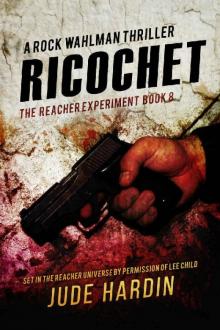 Ricochet: The Jack Reacher Experiment Book 8
Ricochet: The Jack Reacher Experiment Book 8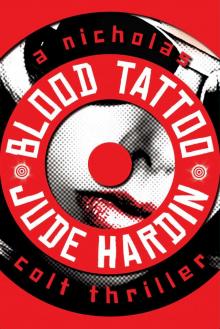 Blood Tattoo (A Nicholas Colt Thriller Book 5)
Blood Tattoo (A Nicholas Colt Thriller Book 5)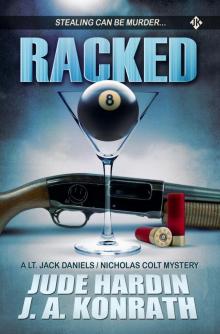 Racked (A Lt. Jack Daniels / Nicholas Colt mystery)
Racked (A Lt. Jack Daniels / Nicholas Colt mystery)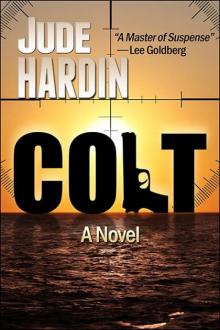 COLT (A Nicholas Colt Thriller)
COLT (A Nicholas Colt Thriller)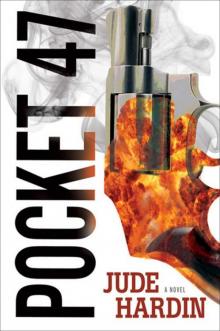 Pocket-47 (A Nicholas Colt Thriller)
Pocket-47 (A Nicholas Colt Thriller)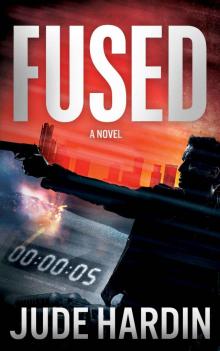 FUSED: iSEAL OMNIBUS EDITION (A Military Technothriller)
FUSED: iSEAL OMNIBUS EDITION (A Military Technothriller)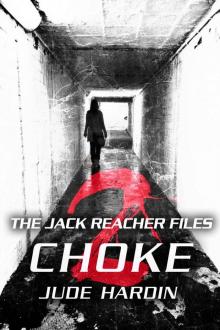 THE JACK REACHER FILES: CHOKE 2 (Episode 2 in the CHOKE Series)
THE JACK REACHER FILES: CHOKE 2 (Episode 2 in the CHOKE Series)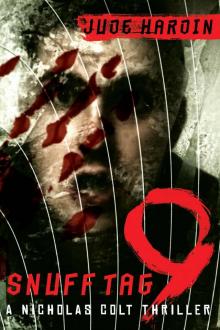 Snuff Tag 9 (A Nicholas Colt Thriller Book 3)
Snuff Tag 9 (A Nicholas Colt Thriller Book 3)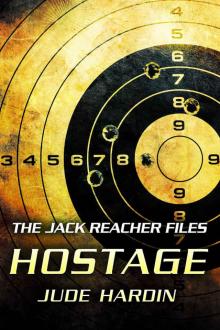 THE JACK REACHER FILES: HOSTAGE
THE JACK REACHER FILES: HOSTAGE THE JACK REACHER FILES: THE GIRL FROM THE WRONG SIDE OF CORDIAL (with Bonus Thriller THE BLOOD NOTEBOOKS)
THE JACK REACHER FILES: THE GIRL FROM THE WRONG SIDE OF CORDIAL (with Bonus Thriller THE BLOOD NOTEBOOKS)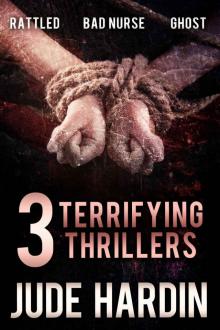 3 TERRIFYING THRILLERS
3 TERRIFYING THRILLERS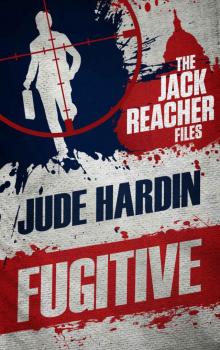 The Jack Reacher Files: Fugitive
The Jack Reacher Files: Fugitive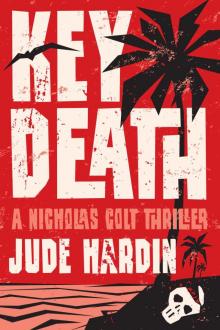 Key Death (A Nicholas Colt Thriller Book 4)
Key Death (A Nicholas Colt Thriller Book 4)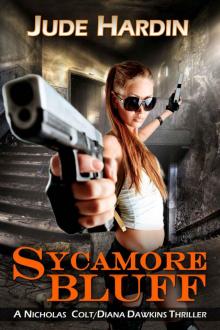 SYCAMORE BLUFF (Prequel to THE JACK REACHER FILES: ANNEX 1) (A Nicholas Colt Thriller Book 8)
SYCAMORE BLUFF (Prequel to THE JACK REACHER FILES: ANNEX 1) (A Nicholas Colt Thriller Book 8)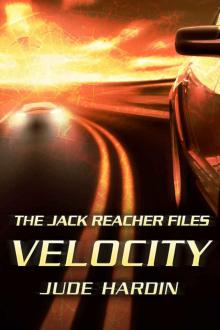 VELOCITY
VELOCITY Fire and Ice
Fire and Ice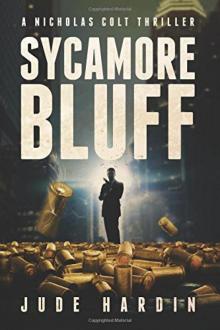 Sycamore Bluff
Sycamore Bluff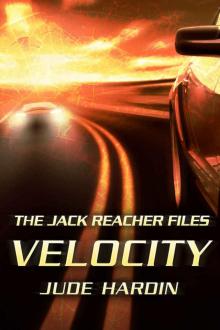 Jack Reacher Files_Velocity
Jack Reacher Files_Velocity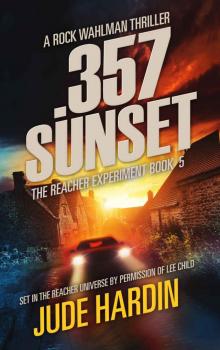 357 Sunset
357 Sunset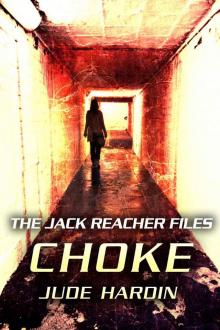 THE JACK REACHER FILES: CHOKE (Episode 1 in the CHOKE Series)
THE JACK REACHER FILES: CHOKE (Episode 1 in the CHOKE Series)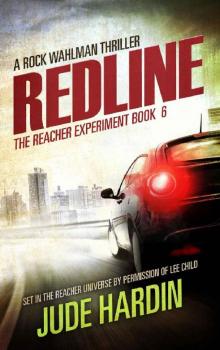 Redline: The Reacher Experiment Book 6 (The Jack Reacher Experiment)
Redline: The Reacher Experiment Book 6 (The Jack Reacher Experiment)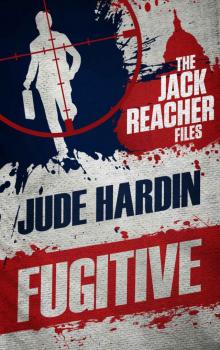 Fugitive
Fugitive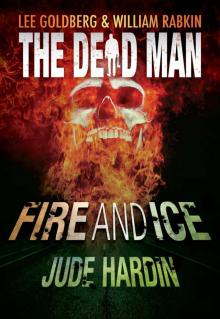 Fire and ice dm-8
Fire and ice dm-8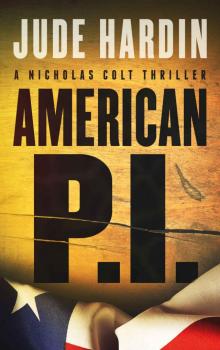 American PI
American PI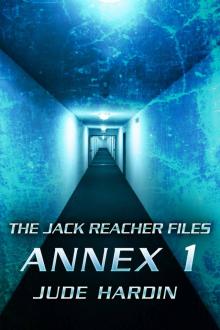 THE JACK REACHER FILES: ANNEX 1 (A Novel of Suspense)
THE JACK REACHER FILES: ANNEX 1 (A Novel of Suspense)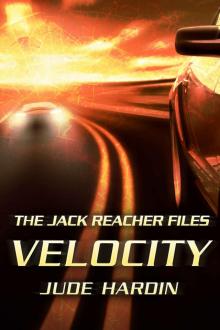 THE JACK REACHER FILES: VELOCITY (with bonus thriller CROSSCUT)
THE JACK REACHER FILES: VELOCITY (with bonus thriller CROSSCUT)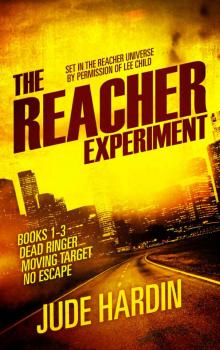 The Reacher Experiment
The Reacher Experiment Hostage
Hostage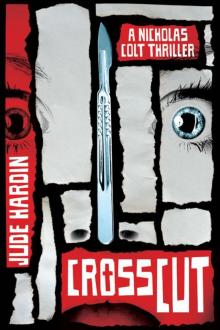 Crosscut (A Nicholas Colt Thriller Book 2)
Crosscut (A Nicholas Colt Thriller Book 2) Lady 52: A Jack Daniels/Nicholas Colt Novel
Lady 52: A Jack Daniels/Nicholas Colt Novel